Make
With Make modules, you can create, run, update, delete, list, and retrieve modules, scenarios, scenario folders, scenario logs, teams, connections, IML functions, webhooks, and RPCs, invite and remove users, and update user organization roles.
To get started with Make, create an account at make.com.
Note
Refer to the Make API documentation for the list of available endpoints.
Connect Make
To connect the Make app:
Log in to your Make account.
Click Profile Icon > Profile.
Click on the API tab. If there is no existing API key, create one by clicking Add token. If there is an existing API key, go to step 6.
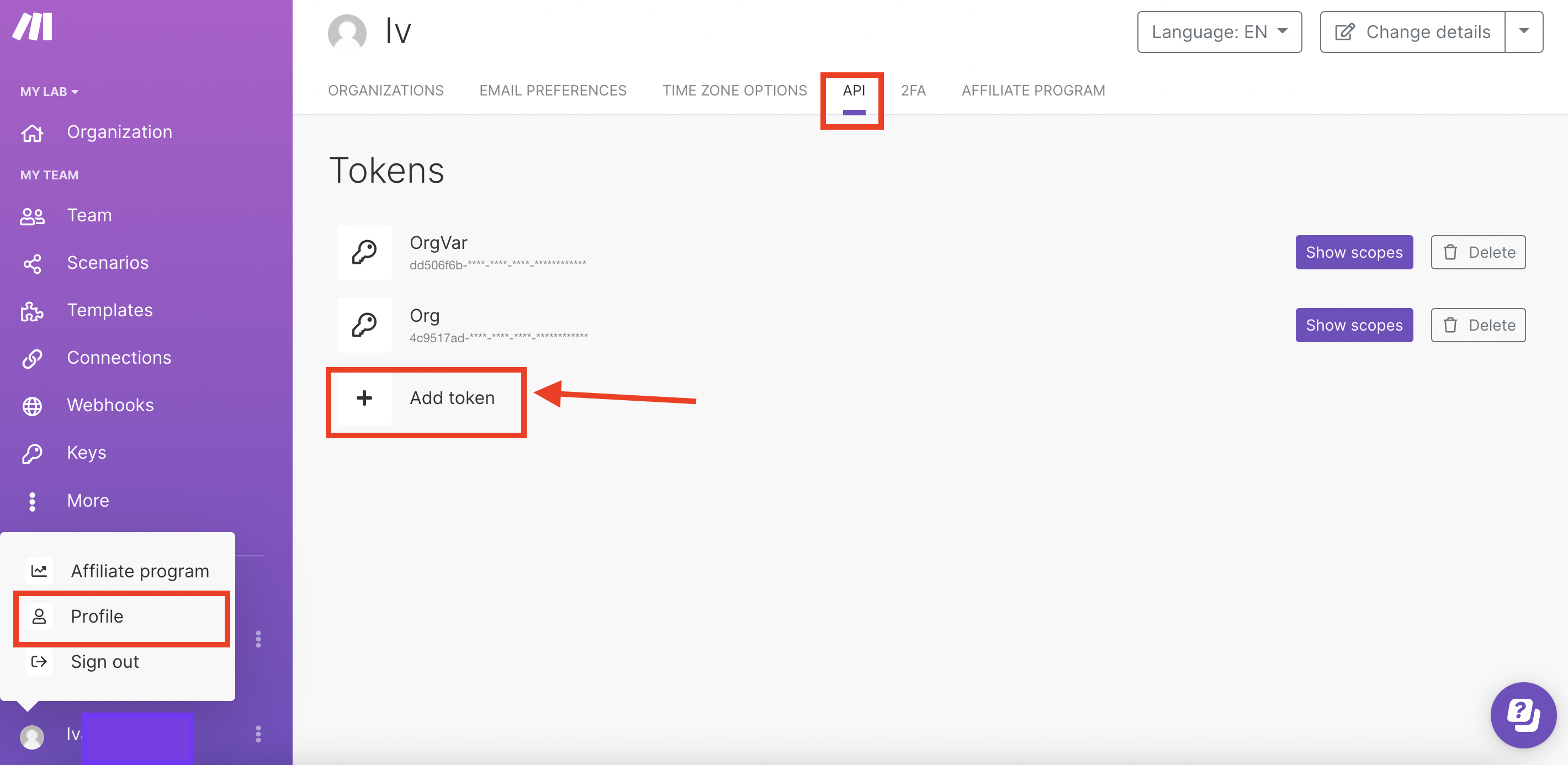
Add the label and scopes for your token and click Save.
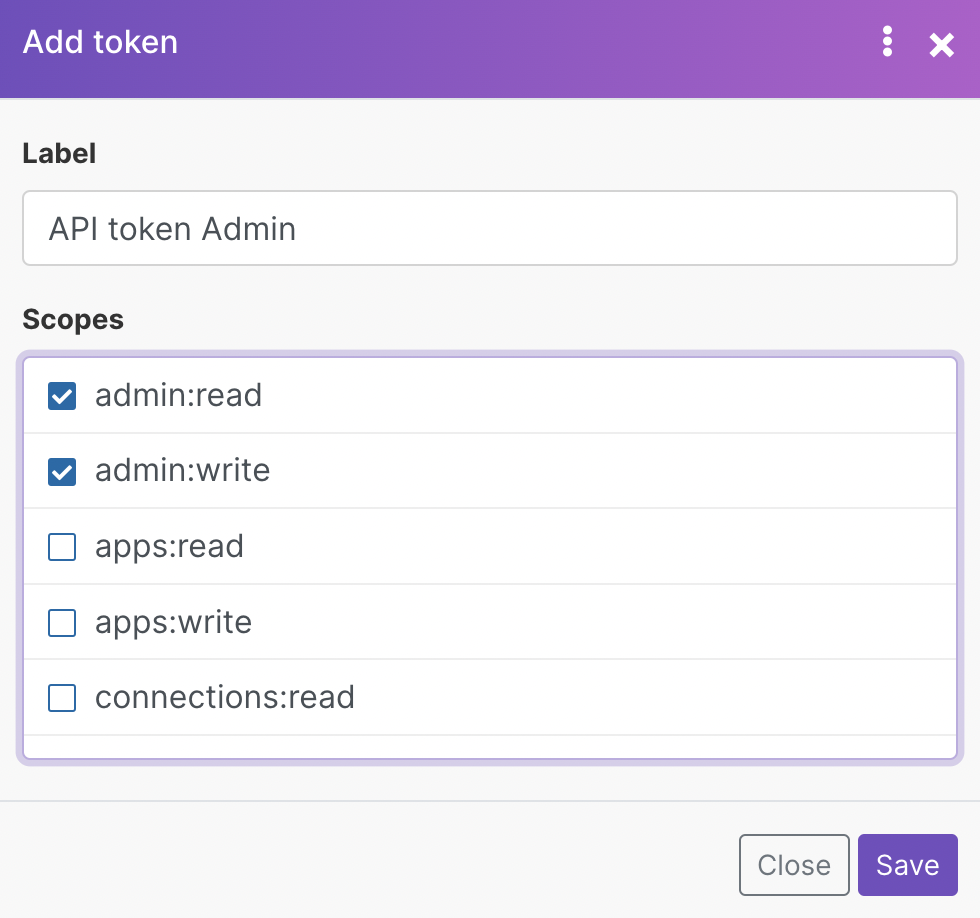
The new token appears on your profile's API dashboard. We will also send you an email notification when you save a new API token.
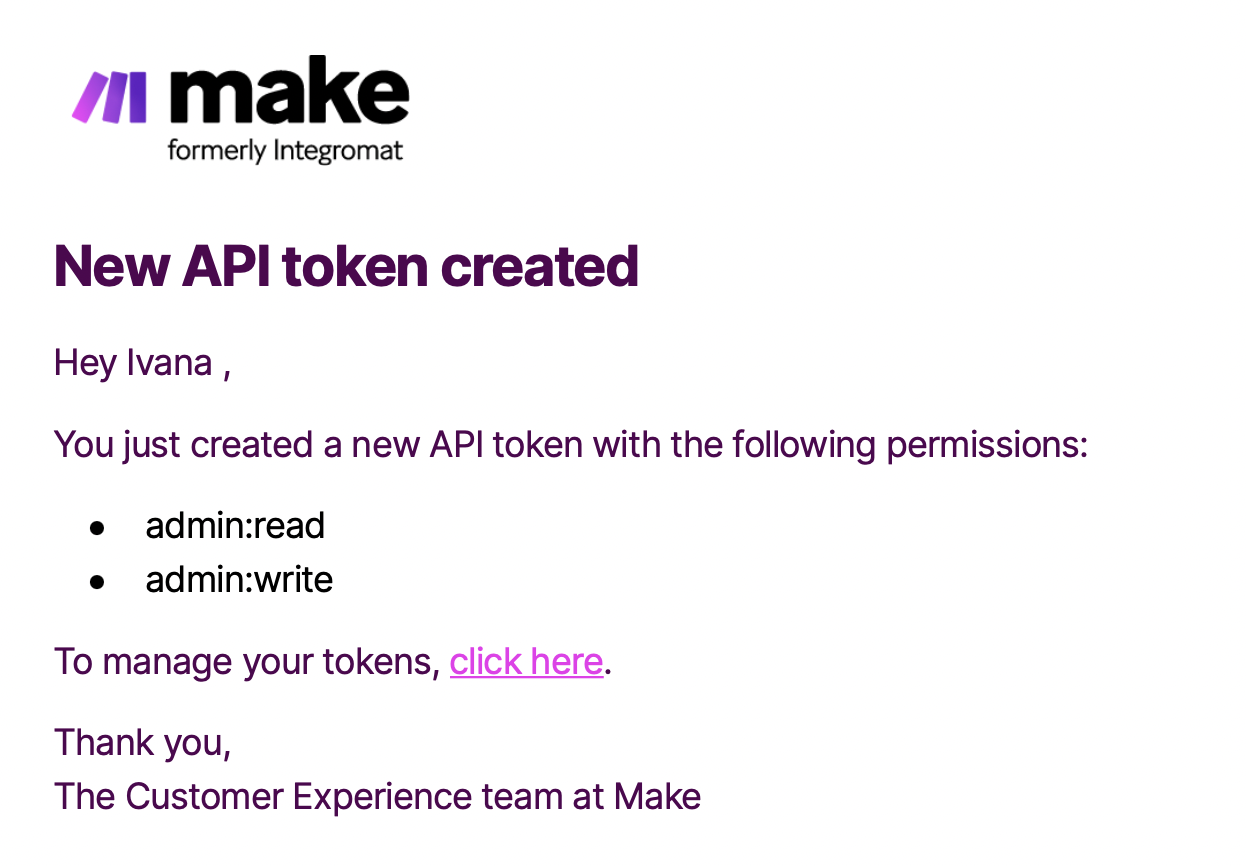
Copy the API Key to your clipboard.
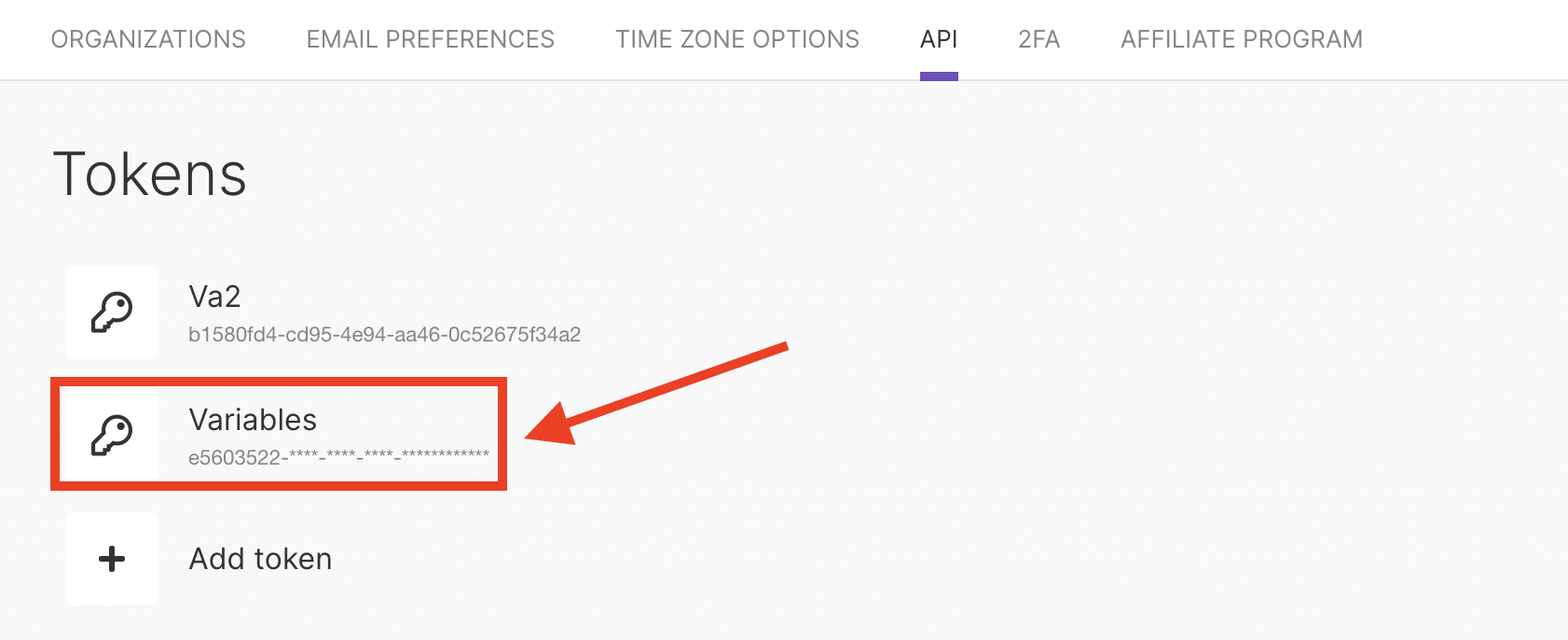
Go to your Make account and add a Make module into a scenario.
Click Add next to the Connection field.
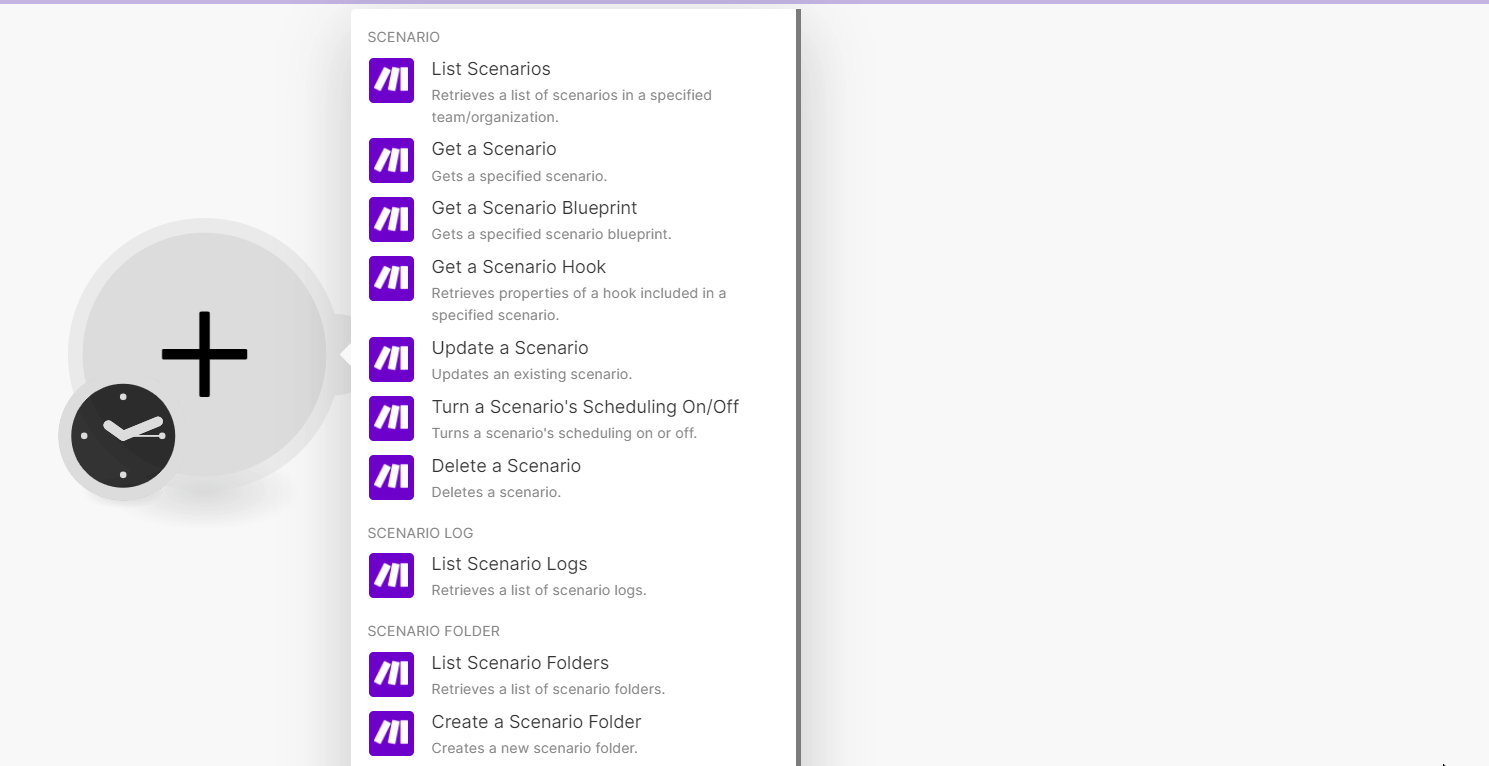
Optional: In the Connection name field, enter a name for the connection.
In the Environmental URL ID field, enter the URL address of your Make instance. For example
https://eu1.make.com.In the API Key field, paste the API key copied in step 6 and click Save.
You have successfully connected the Make app with Make and can now build scenarios.
Build Make Scenarios
After connecting the app, you can perform the following actions:
Run a Scenario
Executes a scenario. The scenario can contain scenario inputs.
List Scenarios
Retrieves a list of scenarios in a specified team/organization.
Note
Set either your organization ID or your team ID. If you want to set the team ID, click the map slider.
Get a Scenario
Gets a specified scenario.
Get a Scenario Blueprint
Gets a specified scenario blueprint.
Get a Scenario Hook
Retrieves properties of a hook included in a specified scenario.
Create a Scenario
Creates a new scenario.
Update a Scenario
Updates an existing scenario.
Turn a Scenario's Scheduling On/Off
Turn a scenario's scheduling on or off.
Delete a Scenario
Deletes a scenario.
List Scenario Logs
Retrieves a list of scenario logs.
List Scenario Folders
Retrieves a list of scenario folders.
Create a Scenario Folder
Creates a new scenario folder.
Update a Scenario Folder
Updates an existing scenario folder.
Delete a Scenario Folder
Deletes a scenario folder.
Invite a User
Invites a user to a specified organization.
Update a User Organization Role
Updates a user's organization role.
Remove a User from an Organization
Removes a user from a specified organization.
List Teams
Retrieves a list of teams in a specified organization.
Get a Team
Gets a specified team.
Create a Team
Creates a new team.
Update a User Team Role
Updates a user's team role.
Remove a User from a Team
Removes a user from a specified team.
Delete a Team
Deletes a team.
Create or Update a Custom App
Creates a custom app.
Update a Base
Updates a base.
Create or Update a Module
Creates or updates a module in a custom app.
Get a Module
Retrieves a module in a custom app.
List Modules
Lists modules in a custom app.
List App Groups
Lists custom app's groups.
Create or Update a Connection
Creates or updates a connection in a custom app.
Get a Connection
Retrieves a connection in a custom app.
List Connections
Lists connections in a custom app.
Create or Update a Webhook
Creates or updates a webhook in a custom app.
Get a Webhook
Retrieves a webhook in a custom app.
List Webhooks
List webhooks in a custom app.
Create or Update an RPC
Creates or updates an RPC in a custom app.
Get an RPC
Retrieves an RPC in a custom app.
List RPCs
Lists RPCs in a custom app.
Create or Update a Custom IML Function
Creates or updates a custom IML function in a custom app.
Get a Custom IML Function
Retrieves a custom IML function in a custom app.
List Custom IML Functions
Lists custom IML functions in a custom app.
Make an API Call
Performs an arbitrary authorized API call.
Update a Custom Variable
Updates a custom variable in a team or in an organization.
Watch Scenarios
Triggers when a scenario is created or updated in the specified folder.